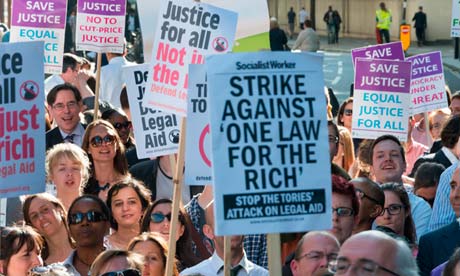Postal workers’ strike: Royal Mail should expect a battle royal
 It’s been a case of third time unlucky for the postal workers’ union (CWU). It defeated the privatisation of Royal Mail in 1994 under the Tories and again in 2009 under Labour. Despite employing similar tactics of political lobbying and industrial action, on Tuesday the company was floated on the stock exchange. The share price has risen by almost 50% since then. And just a tiny handful of postal workers refused to take up the free share offer open to them.
It’s been a case of third time unlucky for the postal workers’ union (CWU). It defeated the privatisation of Royal Mail in 1994 under the Tories and again in 2009 under Labour. Despite employing similar tactics of political lobbying and industrial action, on Tuesday the company was floated on the stock exchange. The share price has risen by almost 50% since then. And just a tiny handful of postal workers refused to take up the free share offer open to them.
Some have proclaimed it’s “game over” for the CWU and any planned industrial action – the left-leaning New Statesman pronounced striking now was “a little bit pointless”.
Yes, the CWU was caught on the hop by a sell-off timetable that was brought forward, a bargain basement initial share price and having to take extra time to fully check the accuracy of its membership records in order to avoid a possible high court injunction to stop any action.
But exactly the opposite is now true. So while industrial action is extremely unlikely to bring Royal Mail back into public hands any time soon – especially as the Labour leadership reneged on its own party policy within days of it being set , it is still vital. This is because it is necessary to allow the workforce to have the chance to contest what privatisation turns out be. And, that’s why postal workers today voted by 4-1 for action on a high turnout.
…
